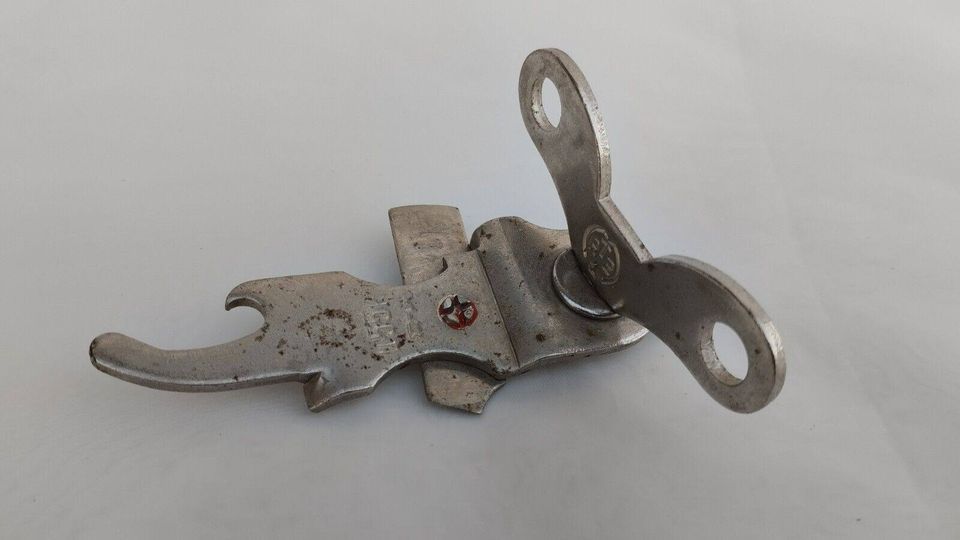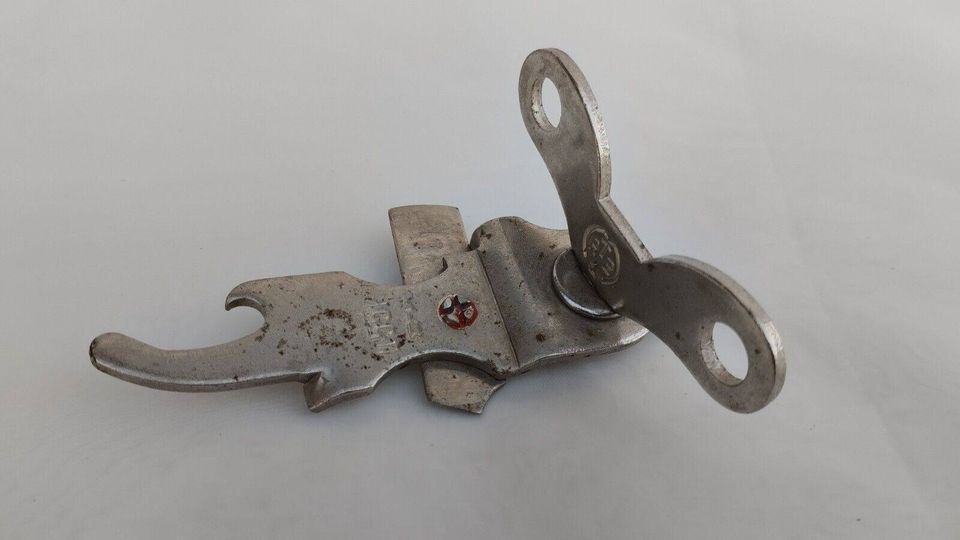
The majority of people no longer recognize this item. Real legends alone are aware of this.
Do you recall the good old days when kitchen tools were basic but efficient? We didn’t have all the fancy devices and technologies we have now back then. The can opener key is one such antique that has been forgotten.

Thoughts of Nostalgia
Let’s pause to consider the modest origins of kitchen implements and discover the underappreciated history of the can opener key. This tiny device was crucial to the development of canned food, a ground-breaking idea that altered our eating habits.
Growth of Food in Cans
Canned foods began to become extremely popular in the late 1800s. The ability to preserve food for longer periods of time delighted people. One issue remained, though: how would one get to the goodness that was concealed within those cans?
Creative Design
Let us introduce the can opener key, an incredibly clever device for its day. In contrast to the contemporary electric openers we utilize today, the can opener key needed patience and ability. It was an easy-to-use instrument for opening cans, with a rotating handle and a sharp blade.
More Secure and Effective
This technique transformed the way we opened cans, making it safer and more widely available, particularly in isolated places with limited energy. No more hurting yourself trying to pry open a can with a knife.
A Sign of Ease
The key to the can opener is not only a kitchen gadget. It represents an earlier time of hope and ingenuity. It takes us back to a period in history when people were content with the little things in life and knew how to get by with less.
Remember that you are holding a piece of history the next time you find a can opener key in your grandmother’s kitchen drawer. And let it be a lesson to value, among our fast-paced, disposable culture, the creativity and simplicity of the past.


